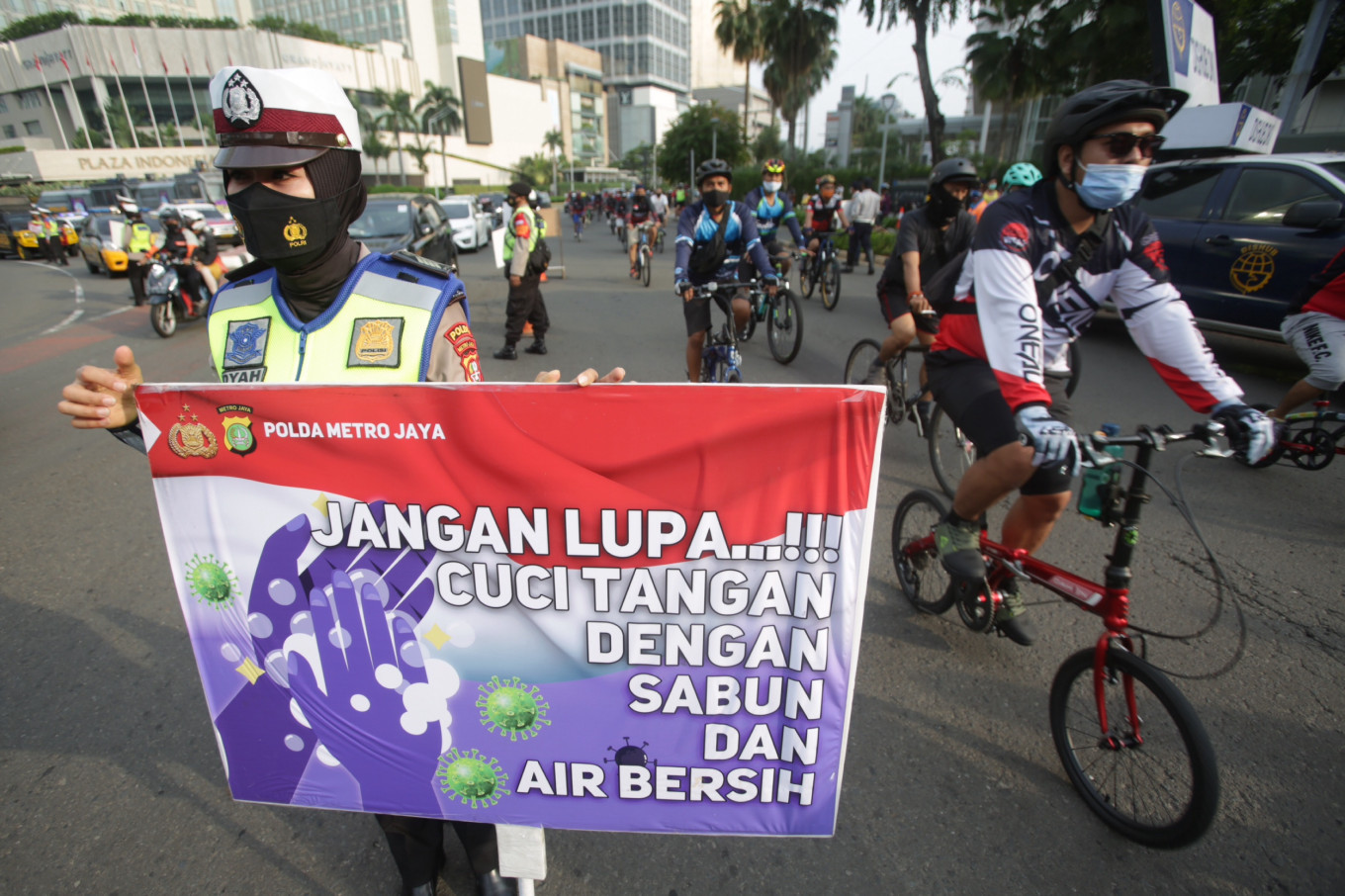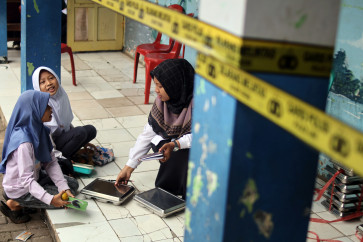Popular Reads
Top Results
Can't find what you're looking for?
View all search resultsPopular Reads
Top Results
Can't find what you're looking for?
View all search resultsBetween health and wealth
Although the government claims that public health is a top priority, the course of its COVID-19 response shows it is the economy that counts, probably because of stagnation in growth even before the outbreak struck.
Change text size
Gift Premium Articles
to Anyone
C
omplaints about difficulties in making ends meet during the pandemic come from every walk of life and everywhere. Hopes are mounting for the health crisis to end soon, given its adverse impacts on people’s well-being, which in many cases, are unbearable. COVID-19 has caused a steep drop in — if not a complete loss of — income, a contraction in spending and uncertainty over people’s livelihoods, not to mention difficulties facing students and teachers in adapting to online education.
The pandemic has hit the poor and vulnerable the hardest, which is why governments are prioritizing social protection for them to avert widespread food insecurity.
On Sunday, a survey by Indikator Politik Indonesia found that most respondents would prefer an end to large-scale social restrictions (PSBB), which is unsurprising. The survey, conducted from Sept. 24 to 30 to observe the dynamics between economic and public health interests in the government’s response to COVID-19, discovered that 55 percent of respondents said the restrictions were enough and could be lifted so as to allow the economy to reopen. Only 39 percent believed the PSBB policy should continue to contain the spread of COVID-19.
In a previous survey in May, the pollster found that 50.6 percent of respondents agreed to the policy as a measure to bring down infection rates and 43.1 percent wanted the government to put a halt to restrictions. People’s confidence in the PSBB as an effective way to cope with the pandemic plummeted to 34.7 percent in July, when the pollster conducted its second survey.
The pollster’s executive director, Burhanuddin Muhtadi, had an interesting explanation for why the public called for a termination of the restrictions. First, the public wants the economy to go back to normal as they have already suffered enough. And second, the public does not think PSBB measures have made a difference.
In fact, the partial lockdown is not a very popular strategy for flattening the COVID-19 transmission curve. Since the first infection cases were announced in early March, only 25 regencies, municipalities and provinces have enforced the mechanism, many of them for just a brief period.
Jakarta, the epicenter of the disease, has been maintaining its PSBB measures, either in full or in a relaxed manner — called a transitional PSBB — since mid-April. When implemented in full force, the policy proved to significantly lower single-day infection cases. It is allegedly due to pressures to reopen the economy that the Jakarta administration decided to again relax restrictions on Oct. 12.
The government has from the beginning been reluctant to impose restrictions. President Joko “Jokowi” Widodo even warned regional leaders against resorting to a lockdown and required them to seek the central government’s consent before implementing a PSBB policy. Although the government claims that public health is a top priority, the course of its COVID-19 response shows it is the economy that counts, probably because of stagnation in growth even before the outbreak struck.
Governments have chosen different approaches in tackling the pandemic and its impacts on the economy, and there is no magic bullet for this complex social, economic and health challenge. But for a sustainable recovery, there is no doubt that public health must come first.










